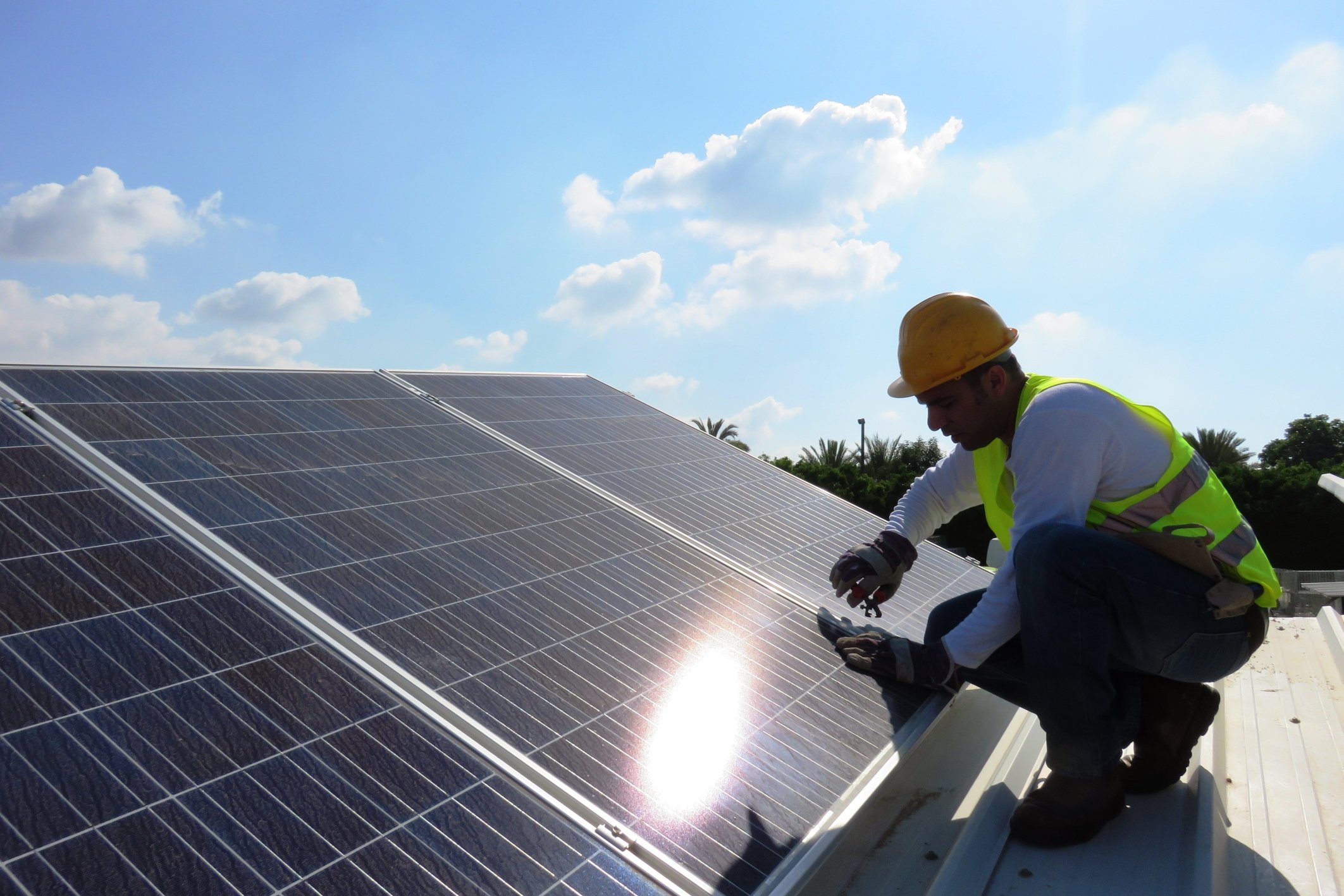Don't look now but SunPower (SPWR +0.00%) has become the best-performing stock in the solar industry. Over the past year, it's been better than fellow U.S.-based companies First Solar (FSLR 6.61%) and SolarCity (SCTY +0.00%), and far better than most Chinese manufacturers. Yingli Green Energy (NYSE: YGE) and Trina Solar lag well behind even after recent pops higher; only Canadian Solar (CSIQ 10.12%) can come close to SunPower's return (and I'll get into the reason for that below).
SPWR Total Return Price data by YCharts
So, why is this stock so hot and can the streak continue? I think so, and there are three big reasons why.
Downstream solar is the dominant paradigm
If you have the choice between risky solar manufacturers and a downstream installer, it's better to choose the installer right now. They can lock in long-term power supply agreements, building a business that acts more like a bond than a volatile stock. SolarCity has used this model with success, and despite the fact that it isn't reporting a profit yet, it's building solar installations that will generate revenue for 20 or more years.
The same can be said for utility-scale solar, where First Solar dominates. Companies can build projects and sell them off to investors like Warren Buffett -- who has bought projects from both SunPower and First Solar -- or own them and generate long-term cash flow. The latter option is best in the current environment, but if REIT and MLP models are opened up to this industry, that trend may change.
It's expanding in the downstream market that has put Canadian Solar ahead of competitors as well. It's building demand for its own panels and raising margins as a result.
But, if you want exposure to residential solar and utility solar there's no better company than SunPower. It is one of the largest utility-scale installers in the world and has a concentrated product, called C7, that could drive the next generation of growth. In residential and commercial solar it's smaller than SolarCity, but it projects more profitable installations and is growing quickly.
Efficiency vs. cost
There's still a lot of debate over whether efficiency matters beyond a certain point in solar. Clean Power Finance CEO Nat Kreamer, who helps line up financing for residential and commercial projects, thinks that a more efficient panel isn't worth the cost in today's market and a standard efficiency product is good enough. That may be true today, but investors also need to think about tomorrow's market.
Over the last few years it's become very evident that it's easier to cut costs in solar than it is to increase efficiency. First Solar once dominated the industry with a low-cost, low-efficiency panel and; it's now had to buy a solar start-up to get into the high-efficiency market. Even if SunPower is making a product that's more costly and more efficient than the residential market needs, I would rather buy that and bet on rapidly falling costs than on the improving technology of commodity solar panels. Chinese players like Trina and Yingli spend almost nothing on R&D and aren't likely to increase efficiency more than incrementally in the next few years, so it's much more likely that SunPower will cut costs than increase efficiency.
Profits and balance sheets matter
Even if efficiency doesn't matter as much as I think it does, investors will want to buy companies that are making money long term. SunPower increased its non-GAAP gross margin to 22.7% in the first quarter of this year and expects to make a profit on a GAAP basis this year as well.
On the balance sheet, there are few companies in solar who are its equal right now. SunPower has $142 million of net debt compared to the billions of dollars in debt for Yingli, LDK Solar, and Suntech Power. Even leading balance sheets of Chinese companies, like those of Canadian Solar and Trina Solar, are loaded with debt, and these companies are losing money rapidly each quarter.
SunPower has a better balance sheet than its competitors, which leads to a more reliable warranty and higher margins.
Foolish bottom line
When you consider that SunPower has a better income statement and balance sheet than its competitors, and has a stronger strategic position both in the upstream and downstream markets, it's easy to see why I think this is one of the long-term winners in solar. Over the past year, that's been manifest in the best returns for investors in the industry and, as the company separates further from the pack, I think that trend will continue.
Add on top of all of the factors above that EU tariffs are hitting Chinese manufacturers this quarter and that the Chinese government has said it will allow companies to fail, the result is that there's a lot of risk investing in Chinese solar manufacturers. I'll take the safety of investing in a company that has many solid advantages over its competitors, than speculate on who might survive the industry in China and what U.S. shareholders may be left with in the end.







